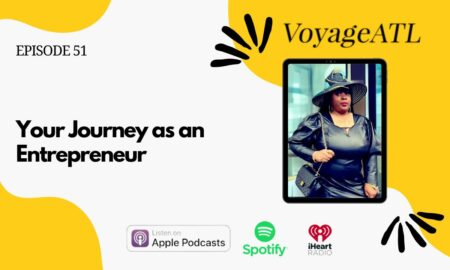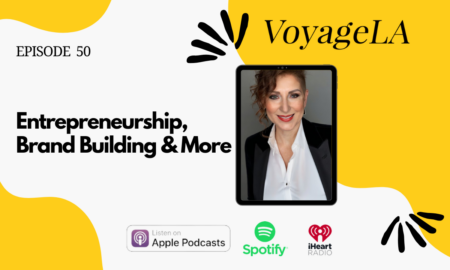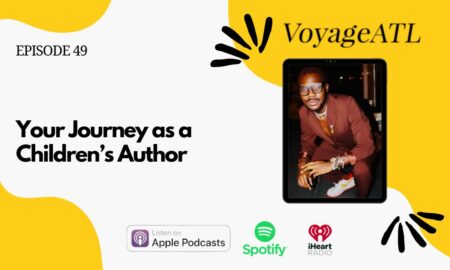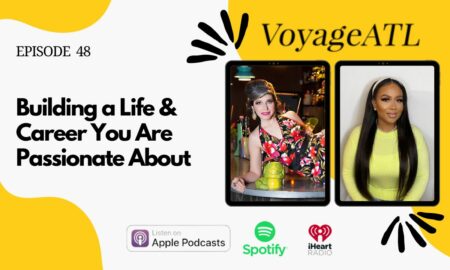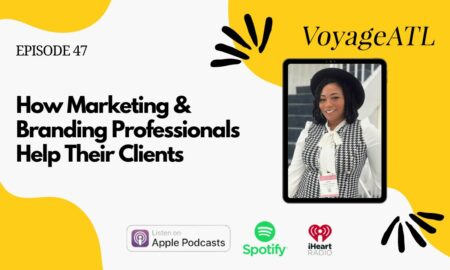

Today we’d like to introduce you to Amariah Love.
Amariah, please share your story with us. How did you get to where you are today?
It’s funny, because I didn’t grow up thinking that I would want to be a counselor. In fact, having been in and out of therapy for much of my childhood and young adult life, I remember thinking that the idea of being in the other chair, of being expected to respond to a stranger’s most intimate life details and vulnerability, was absolutely terrifying, and not the least bit appealing. After I lost my mother to suicide when I was 21 years old, I felt even more strongly that I would never be able to shoulder the burdens of other people; dealing with my own baggage was too much for me too often.
But then, about four years later, I found myself working a desk job for a logistics company. It wasn’t my first full time job, but it was my first job that offered benefits, and the first that required a 40 to 60-minute commute every day. I realized after a year or so that spending five sevenths of my life doing work that meant nothing to me and which did nothing for the world I lived in was soul-crushing for me. I was miserable, and it was not sustainable. So I started to brainstorm – what did I want to do with my life?
That decision had everything to do with what I did with the years between graduating from Georgia State (with bachelors in Sociology and Women’s Studies) and accepting that desk job. After my mother died, I was full of rage. She was a homeless, mentally ill, single mother with a toddler who had almost no family to help her. As an undergraduate student living completely on my own – I became financially independent at the age of 17 – I offered her what help I could. Between student loans and the money I made as a barista, I paid mom’s phone bill, I let her and my little brother Caden stay with me in a tiny, moldy duplex apartment near Turner Field for six months, and I babysat whenever I could.
Her circumstances reached a level of dire which I didn’t comprehend at the time. I was taking a women’s studies course called Class Matters, and after she died, I began making connection after connection between the consequences of a class-based society, in which poverty is cyclical and reinforced, and the death of my mother.
Although I found the education I received at Georgia State invaluable, I became jaded with the rhetoric of activism in academia. I was angry, and in order to survive, I had to feel like I was fighting back. So, a few months after my mother died, I set out for the US Social Forum of 2010 in Detroit, MI, with a group of fellow student activists. My goal was to attend every panel and workshop I could about activism related to working for impoverished women, to try and figure out what I could do in my own community to help prevent more deaths like my mother’s.
That is where I discovered the existence of childcare collectives. I soaked up all the information I could and came back to Atlanta, armed with the wisdom of long-time childcare collective organizers, ready to create an organization that would make a real difference. Kelli’s Childcare Collective of Atlanta (KCCA,) which I named after my mother, sought to make activist spaces accessible to the people who need them most and who, simultaneously, are most often excluded: mothers, and especially low-income mothers of color. So we provided free childcare at conferences, meetings, marches, and whatever other events that progressive, Atlanta-based organizations had, so that having a child and limited income to pay for a babysitter wasn’t a barrier to attendance.
While building KCCA, I was also heavily involved with other organizing efforts including Food Not Bombs, Atlanta Copwatch, and Atlanta Indymedia. I lived in a home owned by organizers who were happy to provide a low-cost or free living situation for activists who were willing to spend at least 25 hours per week dedicated to grassroots activism. I continued working a part-time coffee gig and devoted most of my time and energy to my organizing efforts. It was how I survived the trauma of my mother’s suicide. It was how I came to know and understand the new version of me who emerged from the trembling, broken shell I found myself in when the most important person in my life was taken from me.
Among countless other lessons, I learned that giving back to my community is what feels most fulfilling to me. I learned that seeing my actions make a concrete and positive difference in another person’s life is the only kind of work that felt like it really mattered. I felt very content with my scraggly home, with its hose for a shower head, with my beater of a car, and with a majority of my food coming from dumpsters or organizations that distributed free food rejected from stores.
But one day, I was having lunch with my grandfather, and he asked me, “when are you going to get a real car and a home? And who’s going to take care of me?” He asked these questions light-heartedly, and I simply told him that I never intended to “upgrade,” that I planned to spend my life devoted to activism, and that I fully expected to be poor for the rest of my life. I preferred the rewards of my unpaid work; I knew what made me happy. But his question about who would care for him stuck with me. And about two months later, I had decided it was time for me to find full-time work, because eventually, I would need to help care for my grandfather, and possibly my little brother, whose custodians were his elderly paternal grandparents.
Thus, I found myself miserable and unfulfilled in a desk job, trying to figure out what I could do with my life that would provide real earning potential as well as be intellectually stimulating and emotionally fulfilling. Oh, and I really didn’t want to have bosses anymore.
As is the case for many folks in my field, I was constantly told, as I was growing up, that I was easy to talk to, that I was a good listener, and a good friend. Near and complete strangers would often divulge the most intimate details of their personal lives to me, seeking a sympathetic ear or advice. So counseling just made sense. I researched, applied, and eventually got accepted into the Masters of Clinical Mental Health Counseling program at Mercer University.
Unlike most in my saturated field, I got lucky and landed my dream job about a year after graduating. Through a friend of a friend, I was recruited to Wellspring Counseling Center, where every therapist is poly, kink, and queer-friendly, if not very knowledgeable. The director at Wellspring sees the dearth of sex-positive, trans-friendly therapists and cares deeply about supporting the careers of new counselors who fit those descriptors. Thanks to him, marketing help from friends and colleagues, and my long-established presence in the poly, kink, and queer communities, I have managed to build a client load that is modest but big enough for me to sustain myself within the first six months of my career. This is not something that happens often.
I am in love with my work, and I have been from day one. The first time I left a counseling session in which I was the counselor, I felt absolutely elated. I came to realize that I would get to enjoy that beautiful feeling after almost every single session that I conduct. Not many people have a job which consistently lifts their mood and makes their darker days lighter. I have found that therapy is a flow state, and for me, it becomes a complex and invigorating dance between the counselor and the client. The counselor-client relationship is the most important vehicle for change and growth, so the most important part of my job is building trusting, open, and transformative relationships with other humans. This reality is still somewhat surreal to me sometimes.
I could not possibly ask for a better job.
Contact Info:
- Address: 321 West Hill St, 2D, Decatur, GA 30030
- Website: AmariahLove.com
- Phone: 770-587-4736 / 678-667-1522






Getting in touch: VoyageATL is built on recommendations from the community; it’s how we uncover hidden gems, so if you know someone who deserves recognition please let us know here.















